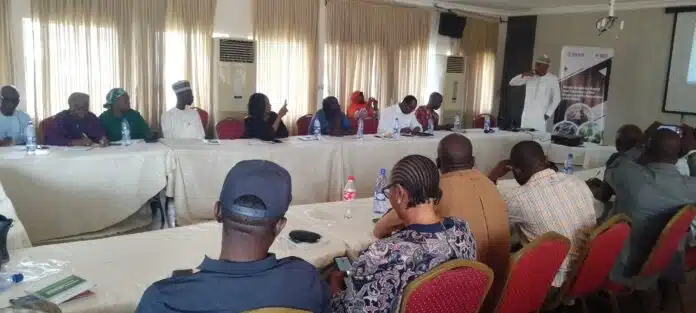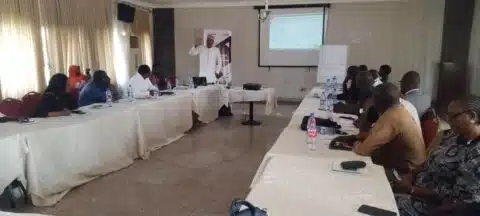From Msurshima Andrew, Makurdi
A Non Governmental Organization (NGO), Mercy Corps has built the capacity of media practitioners in Benue and Nasarawa states to enable them incorporate conflict sensitive guidance into their reporting.
They were trained at 1-day workshop on Conflict-sensitive Reporting organized by Mercy Corps and West African Network for Peacebuilding (WANEP), in collaboration with its consortium partners Benue State Commission for Peace and Reconciliation and Nasarawa Peace Committee. Participants at the workshop include media practitioners from Benue and Nasarawa states.
Speaking during the training in Makurdi on Wednesday, Chief of Party, PARTNER, Mercy Corps Nigeria, Danjuma Dawop, said the training became necessary as the media are an integral part of their peace building within the areas they work.
“So we felt that the training will help strengthen their skills and understanding of conflict dynamics especially the relationship between the digital ecosystem which impacts offline conflicts.”
He said if the media can understand the relationship between the online ecosystem where they operate and the offline conflict dynamics which is the impact of what they write, then they will write in a conflict sensitive way as well as use their power to influence and educate people about conflicts.
He also expressed optimism that if journalists can use conflict analysis skills, they would be able to provide a better perspective about certain conflicts and a lot of people will have a better understanding of conflicts.
Dawop, who attributed the causes of conflict to struggle over resources, unmet psychological needs and disregard or trampling on people’s values noted that conflicts cannot be resolved without management skills, adding that the media who report conflict issues need to have conflict sensitive skills to be able to report the issues from an informed position.
The Chief of Party stressed that journalists must understand the causes of conflict which is in the action of players and the source which most times, bother on infringement on identity, values, tradition and culture of a people.
He admonished journalists not to promote the agenda of a particular group or advocate a particular solution urging them to also avoid bias, sentiments and emotional reporting but to be objective in their analysis.
He hoped that at the end of the training, participants would be able to apply the “Do No Harm” (DNH) analysis to support their understanding, reporting conflict issues and also utilize the DNH and Risk framework as a tool to analyze the impact of their reporting on the conflict situation in Benue and Nasarawa states.
He also urged participants to use their media platforms to share information about the Early Warning Situation Room in Institute for Peace and Conflict Reporting (IPCR) reporting platforms for wider dissemination.
Participants at the training, Peter Duru, Emmanuel Antswen and Uche Nnorom appreciated Mercy Corps and it’s partners for the workshop saying it has further sharpened their conflicts reporting skills.
The training is part of activities under the project known as Peace Action for Rapid and Transformative Nigerian Early Response (PARTNER) funded by USAID and implemented by Mercy Corps.








